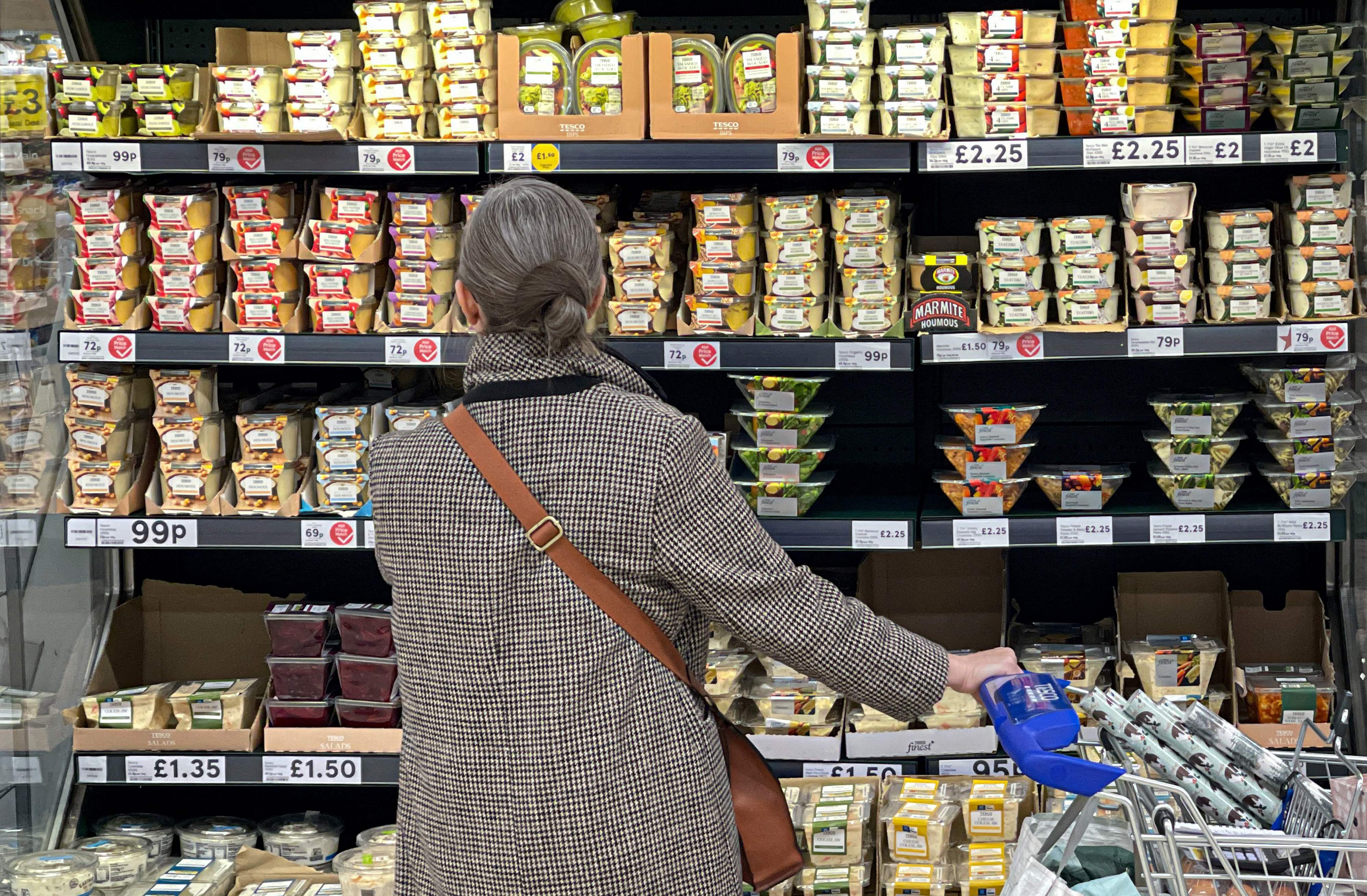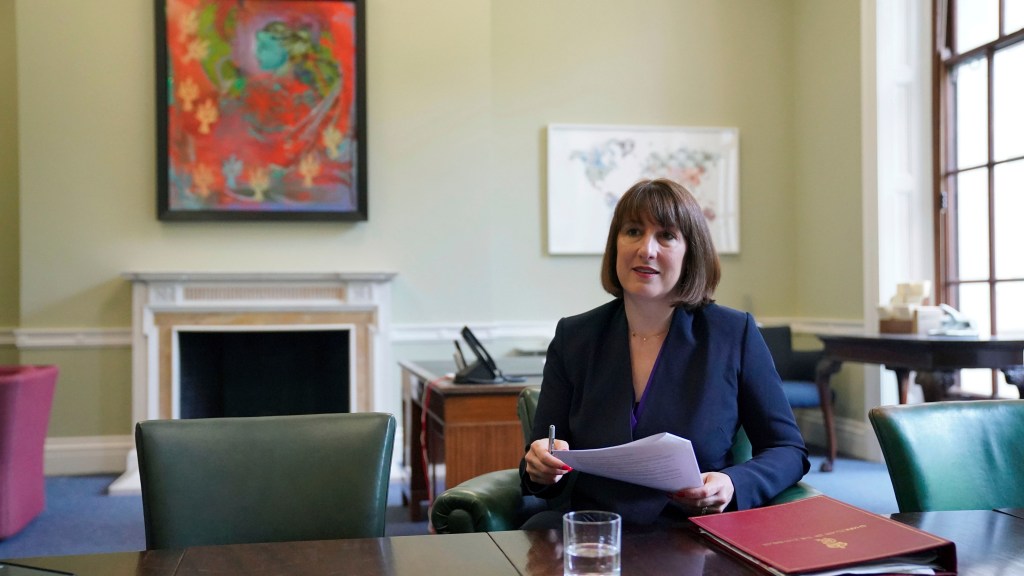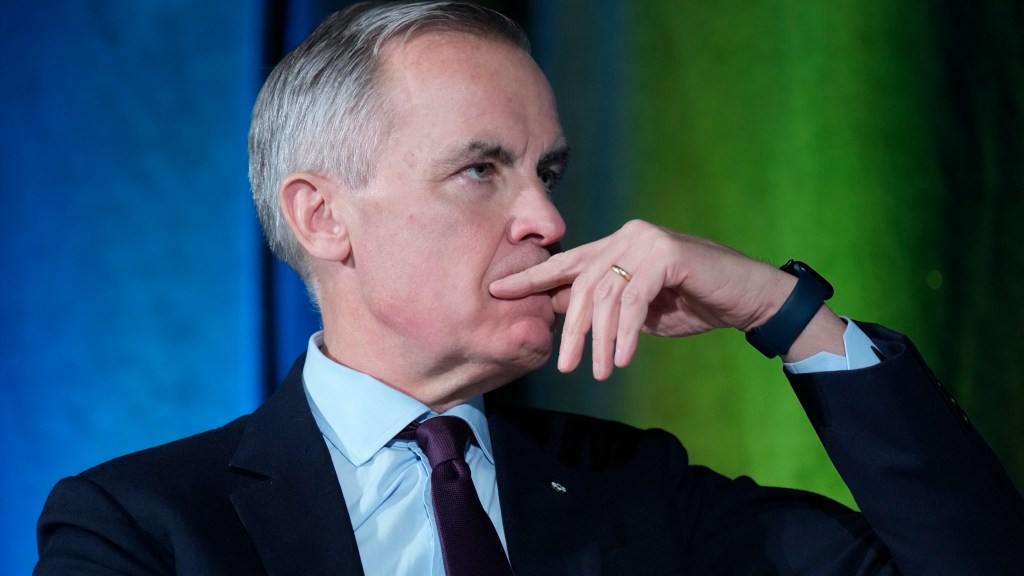Predictions for Rachel Reeves’ October 2024 Budget Announcement
Rachel Reeves has indicated that her inaugural budget, set for October 30, presents an opportunity to “reset” the UK’s economy and encourage investment.
Reeves outlined her approach to presenting this budget to international stakeholders in Washington, following weeks of pessimistic messaging from the Labour government regarding the expectations for the statement. At the annual International Monetary Fund (IMF) meeting, she hinted at potential changes to the fiscal rules, which currently limit government borrowing.
The IMF recently raised its growth forecast for the UK in 2024 more than any other G7 nation, projecting a growth rate of 1.1 percent for 2024 and 1.5 percent for 2025. While the IMF welcomed discussions regarding fiscal rules in the UK, it did not provide a comprehensive opinion on possible adjustments to those rules that might enable Reeves to increase borrowing for public investment.
So far this year, government borrowing has surpassed official predictions by £6.6 billion, illustrating the challenges facing Reeves as she manages current overspending while also needing to fund increased public service expenditures in the future. Treasury officials have warned that the budget scheduled for next Wednesday will involve “difficult decisions”. Anticipated measures include increases in employers’ national insurance contributions, as well as scrutiny of capital gains and gambling taxes.
During last week’s investment summit, Reeves warned businesses that tax increases would be necessary, arguing that stability in both the political and economic landscape is more important for business investment than the level of taxation. There are concerns that the elimination of tax incentives for entrepreneurs, alongside a possible rise in capital gains tax on share sales, could lead some business figures to consider relocating abroad.
Both Reeves and Labour leader Sir Keir Starmer have asserted that the party has never promised to refrain from raising national insurance contributions for employers. While the party has pledged not to increase the primary rates of income tax, VAT, or national insurance contributions for “working people”, the government maintains that this commitment does not extend to businesses. A government minister recently declined to clarify whether high earners would be included in the “working people” promise.
Reeves has stated that “businesses understand” the necessity for tax increases to achieve a balanced budget.
“I don’t see it as a trade-off between restoring economic stability and attracting investment,” she told reporters at the recent investment summit. “The prerequisite for drawing investment to a nation is ensuring economic and fiscal stability.”
In response to speculation regarding increases in capital gains tax reaching 39 percent, Starmer stated that such proposals were “wide of the mark”, asserting that other tax increases would not discourage investment in the UK. He has also signaled a willingness to impose higher taxes on investors, asserting that individuals receiving income from shares do not qualify as ‘working people’.
Recent reports have indicated that UK bookmakers may face tax increases of up to £3 billion, contributing to declines in shares of gambling companies on Monday.
Reeves has pledged that public spending will increase in real terms and emphasized that austerity measures would not be returning. This commitment will likely necessitate tax increases and some additional borrowing.
Nonetheless, Labour’s assertion that Conservative fiscal mismanagement has resulted in a £22 billion deficit that must be addressed via “difficult decisions” has negatively impacted both business and consumer confidence, despite the OECD’s notable annual growth upgrade for the UK within the G7.
Here, we explore potential options available to the chancellor for the upcoming budget.
New Fiscal Rules
The chancellor confirmed the introduction of a new “investment” debt rule at her inaugural budget on October 30, aimed at creating more than £50 billion in extra borrowing capacity for long-term capital investments. Sources from the Treasury suggest that Reeves might focus on measuring public sector net financial liabilities as a percentage of GDP, which would allow for an estimated £53 billion in additional borrowing, according to the Institute for Fiscal Studies. The existing debt rule requires public sector debt to decline in the fifth year of forecasts provided by the Office for Budget Responsibility.
Reeves stated that the new rule would adhere to strict “guardrails”, ensuring that additional borrowing would not be allocated to funding public sector wage agreements or everyday government operations. She expressed intentions not to exhaust all available headroom, affirming that the government would sustain a “substantial” fiscal buffer to keep debt on a downward trajectory within the next five years, in order to instill investor confidence. Analysts project that the government might borrow up to £25 billion to retain over £30 billion in headroom.
National Insurance Contributions
Business Secretary Jonathan Reynolds hinted over the weekend that national insurance contributions for employers could be raised in the budget. Although Labour’s manifesto explicitly ruled out increases in income tax, VAT, or national insurance, Reynolds did not clarify whether this would extend to employers’ contributions. Starmer, when pressed by opposition leader Rishi Sunak at Prime Minister’s Questions last week, did not dismiss the possibility of a similar rise.
An increase of one percentage point in employers’ national insurance contributions could potentially generate approximately £8.9 billion annually.
Changes to Non-Domiciled Tax Status
John Caudwell, the entrepreneur behind Phones4U and a former Tory supporter who shifted allegiance to Labour during the elections, cautioned against proposed revisions to non-domiciled tax status, a system that allows foreign-earned income to be excluded from UK taxes.
“We must be cautious about any measures that could deter foreign investment and wealthy individuals from coming to the UK,” he stated on the BBC. “I am not overly concerned about losing a handful of individuals to Monaco or other tax havens; most of them have already departed. However, we need to be careful with policy decisions moving forward.”
Income Tax
This year, the Treasury is projected to generate over £1 trillion in taxes, with roughly 30 percent, or £303 billion, originating from income tax, making it the government’s largest revenue source.
The chancellor could further increase this revenue stream without raising the main income tax rates by lowering the income thresholds at which these rates — 20, 40, and 45 percent — apply.

The Institute for Fiscal Studies (IFS) indicated that reducing the personal allowance or basic-rate limit by 10 percent, for instance, could generate an additional £10 billion and £6 billion in revenue, respectively.
Income tax thresholds have remained unchanged for several years, a policy initiated by Rishi Sunak in March 2021, pulling many individuals into higher tax brackets as their incomes rise.
Pension Changes
Labour is anticipated to abandon plans for a potential tax levy on pension savings, having received warnings that it would unfairly impact up to one million public sector employees, including teachers and nurses. Senior Treasury officials are believed to have advised Reeves that reducing the 40 percent tax relief currently available for higher earners would disproportionately affect those in public sector roles with comparatively modest incomes.
Presently, pension contributions up to a specified limit (generally 100 percent of annual earnings) benefit from income tax relief, with tax being levied when funds are withdrawn from retirement accounts. This system is intended to ensure that pensions are taxed only once — at the time of use.

However, critics argue that some retirees with tax relief rates of 40 percent or 45 percent end up paying only the basic 20 percent rate of income tax.
The IFS estimates that limiting upfront relief on pension contributions to the basic income tax rate could yield approximately £15 billion annually. Alternatively, making employers accountable for national insurance contributions on employees’ pension inputs could lead to a £12 billion revenue increase over five years, as suggested by the Resolution Foundation.
Capital Gains Tax
The chancellor might consider increasing the primary capital gains tax rate, which is usually set at either 10 percent or 20 percent, or broadening the range of assets subject to this tax. Such actions would align capital gains tax more closely with income tax, although they could stifle investment.
Any hikes in capital gains tax rates or expansions of the tax base may be balanced with inflation adjustments, as current tax obligations apply to purely inflation-driven increases without reflecting actual asset value growth.
It is anticipated that Reeves will either eliminate or revise the business asset disposal relief, previously referred to as entrepreneurs’ relief, which enables individuals selling businesses to benefit from a reduced tax rate of just 10 percent on eligible gains up to a lifetime limit of £1 million. The Treasury views this relief as not providing adequate value for money.
Concerns regarding tax increases have prompted a significant number of corporate leaders to reassess selling their businesses, according to recent analysis.
According to a survey conducted by Evelyn Partners, a wealth management firm, nearly 29 percent of business owners have expedited their plans to sell within the last year, with 23 percent acting due to anxiety surrounding increased capital gains tax liabilities.
Inheritance Tax
Collecting £8 billion annually, inheritance tax ranks among the UK’s smaller tax revenues, affecting only about 4 percent of all deaths. However, it is frequently criticized as it is viewed as a type of double taxation.
Several avenues are available for Reeves to enhance the effectiveness of the inheritance tax system.

The IFS suggested, “A solid starting point could involve capping or eliminating the unwarranted exemptions for pension wealth, business assets, and agricultural land, potentially raising roughly £2 billion annually, assuming no significant changes in behavior result from the alterations.”
Reeves could also consider abolishing or limiting business and agricultural relief from inheritance tax. Additionally, shares in Alternative Investment Market-listed companies can currently be inherited without incurring inheritance tax if held for over two years prior to the owner’s death. Repealing this relief could generate approximately £1.1 billion in revenue.
Thinktank Demos has urged the chancellor to implement a tiered inheritance tax system based on asset value and to close a loophole enabling households to pass on estates to children without incurring capital gains tax liabilities.
Individual Savings Accounts (ISAs)
Reeves has been cautioned that limiting tax reliefs on ISA contributions could suppress vital investment. The increase in ISA deposits, which have reached record levels, might prompt the chancellor to lower the £20,000 tax-free allowance to generate additional tax revenue.
Bank of England data reveals that savers currently hold approximately £375 billion in individual savings accounts, marking the highest level since their inception in 1999. Over the past year alone, ISA contributions have surged by 17 percent, equivalent to £54 billion, surging from £321 billion, with April registering record monthly inflows of £11.7 billion largely due to the tax year deadline.
Ashley Webb, a UK economist at Capital Economics, indicated, “While adjusting the annual tax-free allowance for ISAs could provide the Treasury with more revenue, it won’t alleviate the UK’s low investment levels.”
Tomasz Wieladek, Chief European Economist at T Rowe Price, argued that “the UK does not save enough as a nation. This shortfall significantly contributes to our lack of investment. Given the historically low savings propensity among British individuals, we need to preserve all incentives for saving possible.”
Fuel Duty
It has become an expected practice for Conservative chancellors to defer planned increases in fuel duty. Since 2011, if fuel duty had increased in accordance with the retail price index — an older measure of inflation — the Treasury could have accumulated an additional £19 billion annually.

It is plausible that Reeves will abandon this longstanding norm, potentially generating about £6 billion for the government. However, this projected revenue already reflects in the Office for Budget Responsibility’s latest forecasts.
Implementing such a change could encourage a shift from petrol vehicles to more eco-friendly options when complemented with incentives for electric vehicles.
Property Taxes
A consensus has emerged regarding the inefficiency of stamp duty among economists, with both the OECD and the IFS calling for its abolishment, which would come with a price tag of about £13 billion.

Currently, properties sold for £250,000 or less are exempt from stamp duty, while the next £675,000 attracts a 5 percent charge, rising to a peak of 12 percent for the most expensive homes.
The IFS remarked that stamp duty may be the “most economically damaging tax in the UK,” inhibiting both housing and labor markets and acting as a hindrance to economic growth.
Tax on Private Equity Gains
In July, the Treasury solicited feedback from private equity firms regarding the taxation of profits generated by private equity executives.
Executives within private equity firms invest alongside their investors, earning what is referred to as “carry” or “carried interest” on returns, currently taxed at 28 percent — equivalent to the capital gains tax rate — rather than the combined income tax and national insurance figures totaling 47 percent. This aspect is crucial for executive remuneration in the sector.
Subjecting carried interest to the income tax rates could, theoretically, generate an additional £2 billion in tax revenue, not accounting for potential behavioral adjustments that might lower total revenues.
Tax Increases on Gambling Firms?
Shares in UK-based betting companies fell significantly on Monday amid concerns that the government might increase taxes on gambling firms. Reports indicate that Reeves is contemplating tax boosts for the sector, potentially totaling up to £3 billion.
Additional Options
Banks have profited from not fully transferring the Bank of England’s interest rate hikes to savers, benefiting from a larger “net interest margin”. Reeves could consider implementing a one-off tax to recover some of this unexpected profit.
Despite speculation and pressure from trade unions advocating for one, Reeves has dismissed the idea of a wealth tax.
Nonetheless, she may consider establishing a new tax inspired by existing levies. This approach was previously adopted by Boris Johnson and Rishi Sunak in September 2021 with the creation of the health and social care levy, effectively an added 1.25 percentage point on national insurance contributions, which was later rescinded by Liz Truss and Kwasi Kwarteng in 2022.




Post Comment